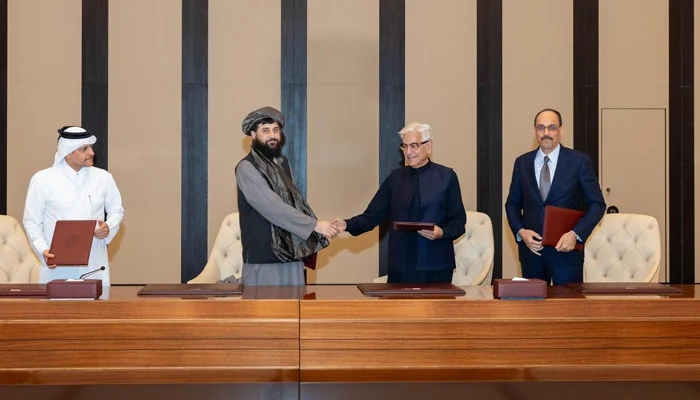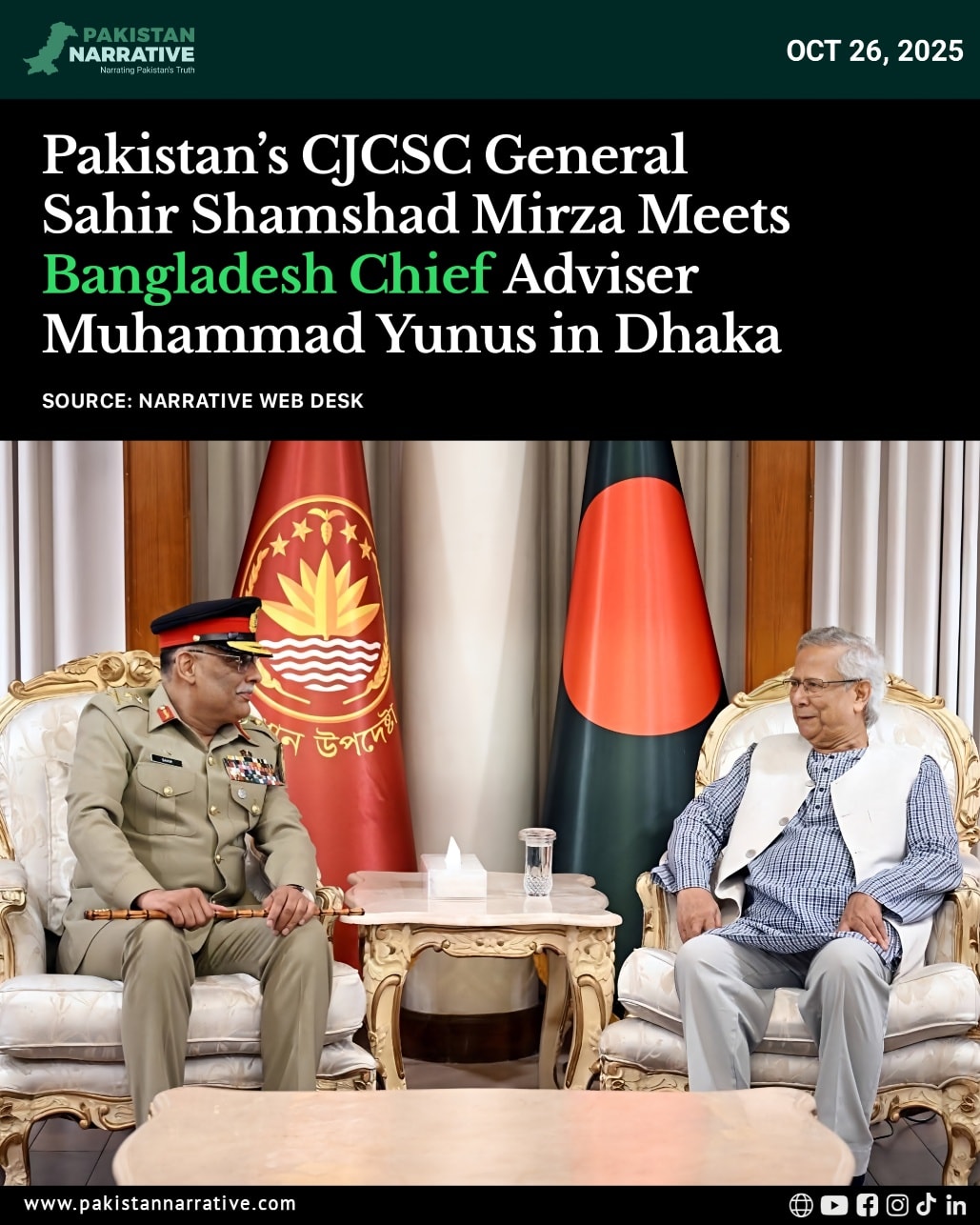DOHA: Pakistan and Afghanistan have reached a landmark ceasefire agreement, marking a major breakthrough in efforts to restore peace and stability along their troubled border, Qatar’s Foreign Ministry announced late Sunday.
The truce, mediated by Qatar and Turkiye, is expected to serve as a strong foundation for long-term peace between the two neighbouring countries, officials said.
Ceasefire Mechanism Agreed
According to a statement by Qatar’s Foreign Ministry, the two sides agreed to an immediate ceasefire and the establishment of mechanisms to consolidate peace and stability. Both sides will also hold follow-up meetings in the coming days to ensure the sustainability and verification of the truce.
Defence Minister Khawaja Asif, who led Pakistan’s delegation in Doha, confirmed the agreement and expressed hope it would end border tensions. He said Pakistan and Afghanistan had pledged to respect each other’s territorial sovereignty, adding that terrorism from Afghan soil against Pakistan would cease under the new arrangement.
Asif announced that both delegations would meet again in Istanbul on October 25 to discuss further steps for consolidating peace. He thanked Qatar and Turkiye for their mediation role.
Background of the Talks
The Doha talks began on Saturday, with Asif heading Pakistan’s delegation, supported by senior security officials, while Afghan Defence Minister Mullah Yaqoob led Kabul’s team, which included the Taliban intelligence chief.
Sources said Pakistan made it clear to the Afghan side that the presence of militant groups such as the banned Tehreek-e-Taliban Pakistan (TTP) and Gul Bahadur Group on Afghan soil was “unacceptable.”
Escalation Before Ceasefire
Tensions between the neighbours flared on October 12 when Taliban forces and India-backed TTP militants launched unprovoked attacks on Pakistan. The Pakistan Army responded decisively, killing over 200 Taliban fighters and affiliated militants, though 23 Pakistani soldiers embraced martyrdom.
The military’s media wing, ISPR, said Pakistan’s retaliatory “precision strikes” in Kandahar and Kabul destroyed multiple militant strongholds.
Information Minister Attaullah Tarar later confirmed that Pakistani forces also carried out targeted strikes against the Gul Bahadur Group in North and South Waziristan, eliminating 60–70 terrorists, including key commanders. He added that security forces foiled multiple infiltration attempts, killing more than 100 militants in total.
Pakistan’s Stance
Prime Minister Shehbaz Sharif welcomed the ceasefire, reiterating that Pakistan is ready to engage with the Taliban regime on “reasonable terms” to achieve durable peace.
Islamabad has long pressed Kabul to prevent its territory from being used by militant outfits, particularly the banned TTP, for cross-border attacks inside Pakistan.
The two countries share a 2,500-kilometre porous border with multiple crossing points, critical for trade and people-to-people ties — but also exploited by militant networks.





